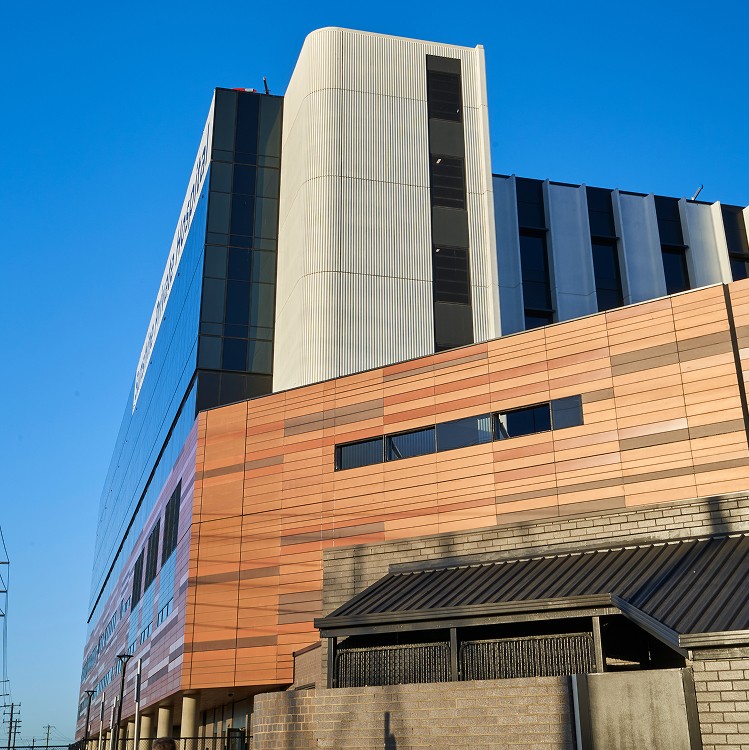
Post-Traumatic Stress Disorder (PTSD) Program
Trauma can leave lasting effects that go far beyond the event itself. For some people, the memories of trauma remain vivid and intrusive, leading to ongoing distress, avoidance behaviours, and difficulties in daily life. This is known as Post-Traumatic Stress Disorder (PTSD).
At Sunshine Clinic Private Hospital, our PTSD Program provides structured, evidence-based therapy for individuals living with trauma-related conditions. Whether trauma stems from combat, emergency service work, assault, accidents, or repeated exposure to distressing events, our program offers a safe and supportive environment where healing and recovery are possible.
Overview of the PTSD Program
The PTSD Program is designed to help patients process traumatic experiences, reduce distressing symptoms, and rebuild resilience. Delivered through outpatient day programs, the therapy combines individual and group-based approaches, ensuring patients receive both tailored care and the benefits of peer support.
1
Education – understanding how trauma affects the brain, body, and emotions.
2
Coping skills – learning strategies to manage anxiety, flashbacks, and hypervigilance.
3
Processing Trauma – safely working through traumatic memories with the guidance of experienced clinicians.
4
Mindfulness and grounding – reducing reactivity and helping patients stay connected to the present.
5
Building Resilience – supporting patients to rediscover purpose, connection, and confidence in daily life.
Our multidisciplinary team includes psychiatrists, psychologists, social workers, occupational therapists and creative therapists. Together, they deliver a holistic treatment plan that addresses both the emotional and practical challenges of recovery.
Conditions Supported by the PTSD Program
Post-Traumatic Stress Disorder (PTSD)
Complex Trauma
Acute Stress Disorder
Co-Occurring Disorders
People Adjusting to Life Changes
Veterans & Emergency Service Workers
Older Adults
People Adjusting to Life Changes
Evidence for Trauma-Focused Therapies
Research consistently shows that trauma-focused therapy is the most effective treatment for PTSD and related conditions.
Cognitive Behaviour Therapy (CBT)
Dialectical Behavioural Therapy (DBT)
Acceptance & Commitment Therapy (ACT)
Mindfulness & Grounding
Creative Therapies
Repetitive Transcranial Magnetic Stimulation (rTMS)
In Australia, trauma is a significant public health concern. Research suggests around one in ten Australians will experience PTSD during their lifetime, with higher rates in veterans and first responders. Women are also more likely than men to develop PTSD following trauma.
How the PTSD Program is Delivered at Sunshine Clinic
Our outpatient PTSD Program is structured and recovery-oriented. It includes:
- Group therapy sessions – focusing on education, skills training, and peer connection.
- Individual therapy – one-on-one sessions tailored to each patient’s trauma and recovery goals.
- Mindfulness and grounding techniques – practical skills to manage flashbacks, hypervigilance, and anxiety.
- Creative therapies – art, music, and movement sessions to support non-verbal processing of trauma.
- Family engagement – involving loved ones (when appropriate) to strengthen understanding and support at home.
- Relapse prevention planning – preparing patients for future stressors and building long-term resilience.
Our therapists provide trauma-informed care, ensuring that all sessions are delivered with sensitivity, safety, and respect. Participation is always voluntary, and patients are supported to progress at their own pace.
Why the PTSD Program is Valuable for Recovery
Living with trauma can feel isolating, exhausting, and at times overwhelming. But with the right support, healing is possible. Patients in our program often report:
- Reduced frequency and intensity of flashbacks and nightmares.
- Greater ability to manage triggers and stay grounded.
- Improved mood and sense of safety.
- Renewed relationships and connection with others.
- A stronger sense of identity, purpose, and hope.
At Sunshine Clinic Private Hospital, we believe that trauma does not have to define a person’s future. Our PTSD Program provides the tools, support, and compassion needed to move beyond distress and towards a life of stability, meaning, and recovery.
Comprehensive Private Mental Health Care in Melbourne’s West
Sunshine Clinic offers psychiatry consulting services, as well as inpatient and outpatient programs tailored to support recovery, resilience, and long-term wellbeing.